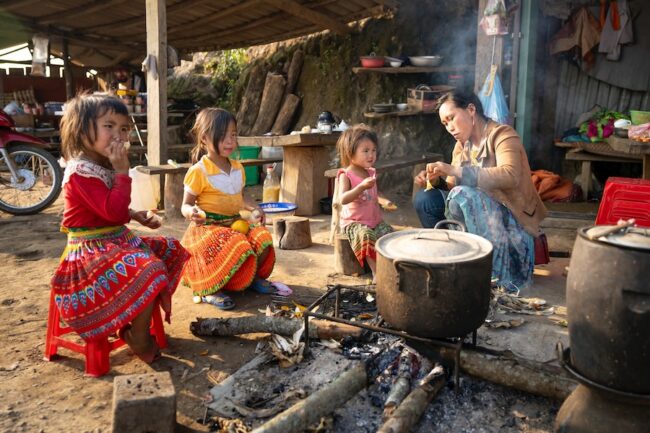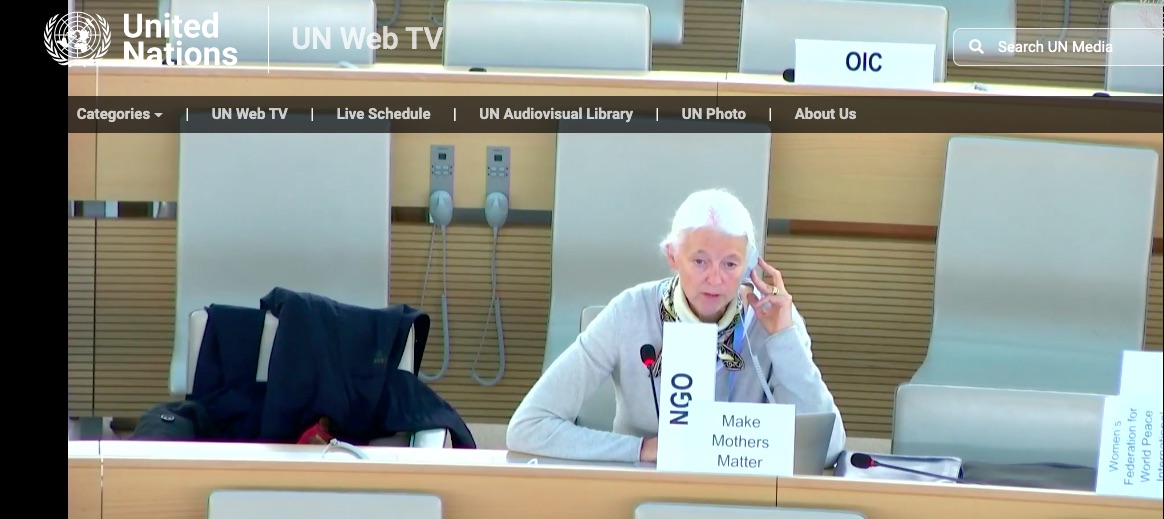Valuing and supporting Care work: key to progressing the right to development
03.12.22
UN Geneva, Expert Mechanism on the Right to Development - Commenting on a draft thematic study on Inequality and social protection systems in operationalizing the right to development, MMM highlighted the importance of taking the particular needs of women into account. Women can only enjoy the right to development, including the right to participation, if the issue of unpaid family care work is recognized and addressed. Social protection systems are key to adequately support the foundational yet unpaid work of caring, which ultimately benefits everyone.

The fact is that to ensure equality of opportunity for women, and their full and effective participation in economic and social development, we must address the inequitable distribution of unpaid care work. This issue is at the root of Gender inequalities and a main cause of reduced or even lost opportunities for women and girls.
In particular it is time to establish:
- that the unpaid work of caring for others IS work, essential work that must be recognized and supported for what it is: foundational to our society and our economy
- that this work is mostly done by women and girls, who are heavily penalized for assuming this responsibility, in particular when they are mothers
- that unpaid care work should be a collective responsibility, and that it must be more equitably shared between men and women, but also across society – including through the provision of supportive infrastructure and social protection systems
These necessary steps are in line with the Secretary General’s recommendation in Our Common Agenda to measure and value what matters for people and the planet – beginning with unpaid care work.
The work of Caring is inherently human and it is at the centre of wellbeing, both human and environmental. In our view, valuing and supporting Care work should be at the heart of policy making to implement the right to development.
Disconnecting social protection from formal employment and embracing the principle of universal coverage and social protection floors is a critical first step in this direction, and it is especially important in the current context of economic crisis and the looming threat of austerity. But more needs to be done.
To quote the UN SG: “The pandemic has shown us who is doing the work that really matters: nurses, teachers, care workers. As we recover, we need to remember this. It is time to end the inequities of unpaid care work and create new economic models that work for everyone”.
So here are my (multiple) questions:
- Could the right to development framework help address this issue of the inequitable distribution of unpaid care work?
- To go further along this line, could we recognize Care as a human right, the right to care and the right to be cared for – a new right that supports the right to development?
- How could the right to development framework support the creation of a new economic model that works for everyone and helps us move away from the GDP growth mantra?
The 6th session of the UN Expert Mechanism for the Right to Development took place from 30 October to 2nd of November 2022 at the Palais des Nations in Geneva. MMM contributed this oral statement to the discussion on the draft study on Inequality and social protection systems in operationalizing the right to development, which took place during the last meeting.

The New EU Gender Equality Roadmap : A Call for Inclusion of Mothers
04.03.25
The European Commission’s initiative on a new Gender Equality Roadmap post-2025, marks a significant step forward in addressing gender disparities across the European Union. Make Mothers Matter (MMM
Breaking the Cycle: Gender Equality as a Path to Better Mental Health
18.03.25
The Council of the European Union has taken a decisive step in recognising the vital connection between gender equality and mental health.
Europe Must Listen to Mothers: Our landmark report heads to the European Parliament
28.08.25
On 22 September 2025, the voices of mothers will take centre stage in Brussels. For the first time, Make Mothers Matter (MMM) will present its State of Motherhood in Europe








